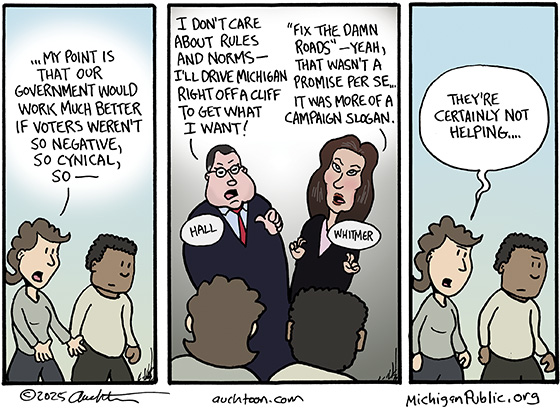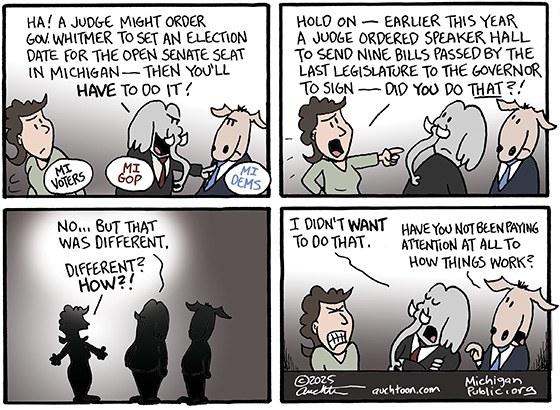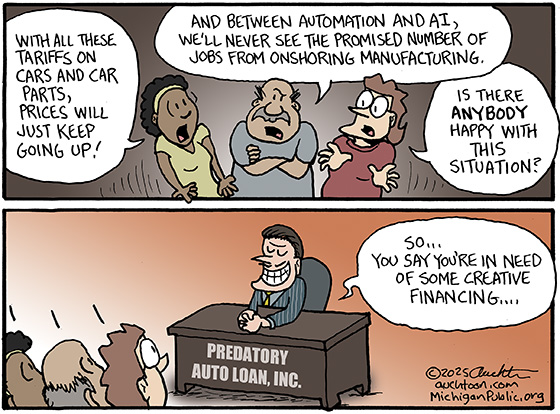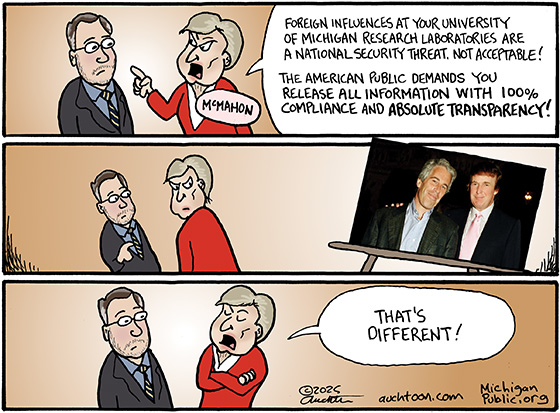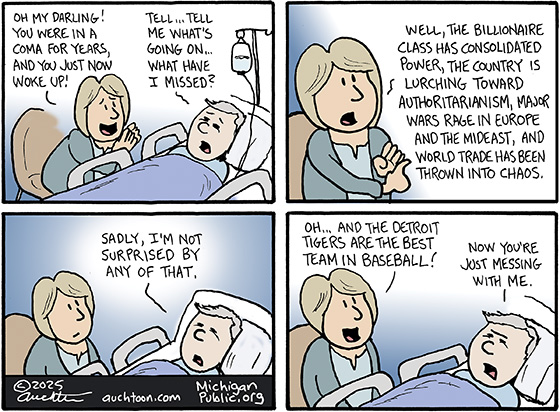Kids These Days
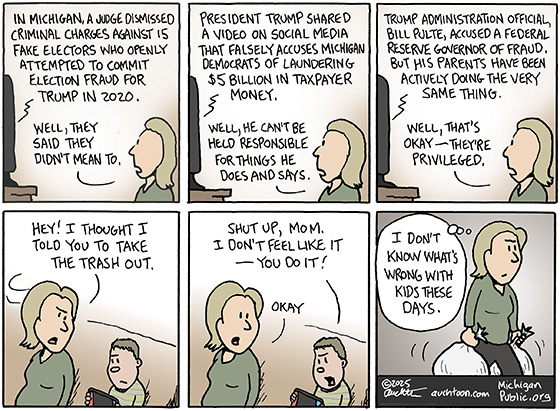
If you’ve ever wondered why people who aren’t Trump supporters get so infuriated with him and his administration, well — let’s be honest — it’s a laundry list. But consistently never taking personal responsibility (particularly when things go badly) is definitely near the top.
This week provided three examples and, bonus, all with a Michigan angle. Fake electors who openly attempted to commit election fraud, Trump himself sharing an ill-informed video about our state budget, and home builder scion Bill Pulte leading the charge to fire Federal Reserve Governor Lisa Cook with accusations of real-estate fraud when apparently it was fine for his father and stepmother.
If like me, your parents raised you to take personal responsibility, to own up to mistakes and admit when you’re wrong, then you know exactly what I’m talking about.
